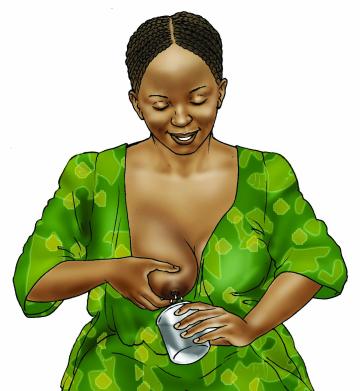Generic C-IYCF Package (2012) (UNICEF | 2011)

Key Messages
Included Images

|
Father Support - Cup feeding 0-6 mo - 04A - Non-country specific by UNICEF/URC-CHS |

|
|

|
Breastfeeding - Expressing breastmilk - 02B - Non-country specific by UNICEF/URC-CHS |

